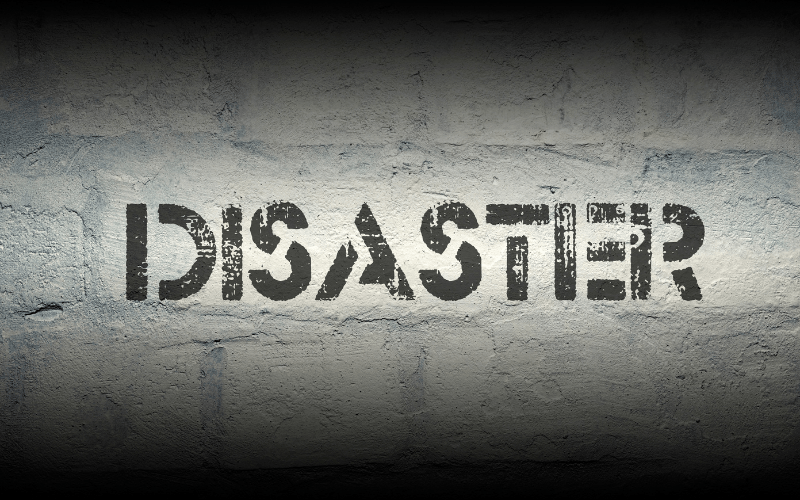March is Ethics Awareness Month, a time to reflect on the ethics we adhere to and how we can grow. We turned to EMDRIA members Jennifer Madere and D. Michael Coy to share more about ethical considerations within EMDR therapy and trauma treatment.
Trauma-Informed Ethics and EMDR Therapy
Guest Blog Post by Jennifer Madere, LPC-S and D. Michael Coy, LICSW
Tell us a little bit about you, your experience of becoming EMDR therapists, and what drew you to consider ethical obligations around EMDR therapy?

Jennifer Madere, LPC-S
Jennifer – I sought training in EMDR therapy in 2009 when I realized that I needed a way to help my clients beyond crisis intervention and stabilization. My passion for this topic is fueled by the ways I have become aware of errors my practice, and have seen people harmed by well-meaning (but incompetent) EMDR therapists. As I have specialized in working with complex trauma and dissociation, I have heard many clients share these unfortunate experiences. Our profession must do no more harm (APA, 2024).

D. Michael Coy, LICSW
Michael – After having experienced the positive impact of treatment with EMDR therapy as an early-career social worker, I made the decision to train in the approach in 2011. My initial interest in professional ethics, specifically related to EMDR therapy, arose from my early mistakes in treating clients with complex trauma and dissociative features. Over the years, ethical practice with dissociative clients has become, as for Jennifer, an abiding passion.
Help us understand what ethics are and why they are important in the treatment of trauma and in EMDR therapy.
We see ‘ethics’ as a framework that helps us to know our role and the limits of it, which in turn alerts us to when we may be near the edge of our role and/or our ability to help rather than hurt. Ethics is just one leg of the three-legged stool that is the standard of care: The usual and customary professional practice standards in the community of peer professionals with the same educational level, license, and training, and conditions that prevail —or should prevail—and that a ‘reasonable and prudent’ practitioner follows (Zur, 2022). Along with ethics, the other two legs of the standard of care are legal statutes and licensing rules, and treatment or practice guidelines. These three ‘legs,’ in combination, can help guide us in our area(s) of practice by giving shape to best practices for treatment.
The APA code promotes the ethical principles of beneficence and nonmaleficence, fidelity and responsibility, integrity, justice, and respect for people’s rights and dignity (APA, 2017). In addition, we think it is helpful to delineate between:
- Competence (a trio of requisite knowledge, clinical skills, and professional conduct);
- Proficiency (being able to apply a specific set of knowledge and skills); and
- Specialization (evidence of advanced knowledge and skills developed over time in an organized and verifiable sequence).
For example, one may be trained in EMDR therapy (and gain proficiency), but that does not guarantee that one is competent as a trauma-focused practitioner. One may be a Certified EMDR therapist and ostensibly proficient in the standard EMDR therapy protocol, but that does not mean one has specialized in treating any particular issue or clientele.
There is a huge gap in basic competence in our field with regard to the treatment of trauma-related symptoms. Most masters- and doctoral-level practitioners did not receive training in trauma (let alone complex trauma or dissociation) in their academic program (Foltz et al., 2023). Most undergraduate and graduate textbooks give inadequate or inaccurate treatment to trauma and its effects such as related diagnostic categories (dissociative disorders, etc.) (Nester et al., 2023). This vacuum is too often filled by misinformation passed on by professors, supervisors, trainers and peers. This becomes an ethical liability because we are more prone to make ethical missteps and practice outside the standard of care when we don’t know what we don’t know – either out of over-confidence or out of fear (Anderson & Handelsman, 2010; McNeill & Stoltenberg, 2016).
In what ways might ethical considerations be challenging for EMDR therapists?
We have thought the most about how this applies to EMDR and dissociation. In fact, we have offered courses on the subject, both privately and through the International Society for the Study of Trauma and Dissociation. In those courses, we discuss the four schools of thought regarding EMDR and dissociation.
- Never use EMDR with a person with a dissociative disorder.
- You just need the ‘right’ EMDR protocols to treat dissociation.
- Break through the dissociation and it’ll go away.
- Cultivate an informed and thoughtful approach to treatment.
It is probably no surprise that we subscribe to #4. The preceding three in that list, however, are alive and well, and we have seen repeatedly in our respective and shared training and consultation experiences that extreme thinking is apt to yield extreme treatment results. Sometimes ‘extreme’ means that a clinician withholds treatment unnecessarily because of what they learned. In other instances, it means that a clinician adopts a dogmatic way of thinking that lacks the flexibility needed to treat issues that demand a more integrative approach. Then, there are the times when a clinician gets hold of a new treatment protocol and everything begins to look like the proverbial nail, but without regard for whether it is appropriate for use with a particular client. In some cases, as Michael is fond of saying, it may be impossible to get the (trauma) toothpaste back into the tube.
What successes have you seen when EMDR clinicians keep ethical considerations in mind?
Ethical practice is nuanced, but it doesn’t have to be fancy. When we understand and apply the basics well, treatment is usually ethical and effective; for example, having a clear sense of how to adjust the scope of Phase II: Preparation, the treatment plan, and reprocessing carefully, in a way that is attuned to the individual. Clients then receive treatment that is responsive, relatively predictable, boundaried, and safe.
Clinicians cultivate a sense of personal integrity and confidence when they practice within their scope of competence, and they maintain reasonable expectations of themselves and their clients. Ethical practice is also supported by focusing on our professional development in ways that transcend basic competence and reach toward mastery (McNeill & Stoltenberg, 2016). Mastery is an advanced, mature stage of practice where we can both recognize and acknowledge what we know —and what we don’t know. From a mastery perspective, we can tap into multiple conceptual frameworks in a flexible, pragmatic way, which is helpful for successfully navigating complex situations.
Clinicians are also more likely to practice within the usual and customary standard of care when they are connected to their peers —through ongoing consultation, training, and professional organizations. Longevity in the mental health field is a fruit of ethical practice —and the world needs every competent, informed, and dissociation-aware EMDR therapist it can get.
How might there be differences in ethical considerations for a client who presents with PTSD vs a client who presents with complex trauma and/or dissociation? Any other specific considerations that you might wish to mention?
Remember how there are three legs to the standard of care? Different treatment guidelines apply for each of the experiences described above. Treatment paths are likely to vary with each, especially initially. With acute stress and PTSD, relief often comes from going toward the trauma – and reprocessing it – as soon as possible; treatment and practice guidelines reflect this, with all recommended approaches being focused on trauma resolution.
With complex trauma and dissociation, we may not be able to tell which symptoms point most directly to unprocessed trauma at first. Clients may need a greater sense of stability and safety before a) reprocessing targets can be accurately identified, and b) the client can consent to, follow through with, and benefit from reprocessing. Discrete targets may not even exist as we would normally think of them in standard EMDR therapy practice, depending on how highly fragmented the memory material and self-system are. An integrative, psychodynamically informed approach is necessary, which allows us to hold and move among multiple theoretical frameworks and interventions (Yeates et al., 2024). We must continually discern and manage the balance between managing present distress and addressing past trauma (APA, 2024).
What multicultural considerations might EMDR therapists need to keep in mind regarding ethical EMDR treatment?
“Ethical hubris – where [practitioners] assume that their view of ethical issues fits squarely everywhere in the world – is dangerous.” (Reamer, 2012)
When EMDR practitioners apply the AIP model as their only conceptual frame or practice blind fidelity to the basic protocol without consideration of the person in front of them, ethical hubris may be in the room (Coy & Madere, 2024). How someone expresses themselves and reports on their past and present experiences is likely to be influenced by one’s culture and other related factors. Resource/adaptive and unprocessed memory material may be highly culture-specific or language-specific (Ateş-Barlas, 2022). We imagine that the mechanisms of EMDR therapy work consistently across cultures, but how it is employed and experienced will need to vary to accommodate the person/local culture.
Do you have any favorite free EMDR-related resource that you would suggest to EMDR therapists interested in learning more about ethics?
Check out our references – several of them link to open-access articles that provide a deeper dive and data to further explore several of the areas we have focused on here. We have crafted a quiz for readers of this blog to gauge their knowledge in relation to the standard of care. Check it out – and find the links to more resources once you submit your response!
Quiz Responder link: https://docs.google.com/forms/d/e/1FAIpQLScJKqFtiG-C8UqciJg_C_r4F88EdJSA3y-e2qVCqFBoNyW-mg/viewform?usp=dialog
Jennifer Madere is an EMDR Consultant and Trainer and founding partner of Intuitus Group in Cedar Park, Texas, USA. She has accompanied child and adult survivors of trauma in psychotherapy since 2005. Madere has published, presented, and consulted internationally on topics related to consultation, ethics, assessment, complex trauma and dissociation.
D. Michael Coy is an EMDR Consultant and Trainer in private practice in Bremerton, Washington, USA. He has practiced since 2007, serving adolescents, adults, and older adults with complex trauma. Coy has published, presented internationally, and consulted on assessment and treatment of complex trauma and dissociation, hypnotic phenomena, and ethics.
References
American Psychological Association. (2017). Ethical principles of psychologists and code of conduct. http://www.apa.org/ethics/code/index.html
American Psychological Association. (2024). APA guidelines for working with adults with complex trauma histories. https://www.apa.org/practice/guidelines/adults-complex-trauma-histories.pdf
Anderson, S. K., & Handelsman, M. M. (2010). Ethics for psychotherapists and counselors: A proactive approach. Wiley.
Ateş-Barlas, A. (2022). EMDR therapy for bilinguals: Utilizing linguistic diversity for improved therapeutic success. Journal of EMDR Practice and Research, 16(1), 39-46. https://doi.org/10.1891/EMDR-2021-0022
Coy, D. M. & Madere, J. A. (2024, July 12). Standards of care and ethical challenges for using EMDR therapy in the treatment of complex trauma and dissociation. Full-day presentation via live webinar hosted by the International Society for the Study of Trauma and Dissociation. https://cfas.isst-d.org/content/standards-care-and-ethical-challenges-using-emdr-therapy-treatment-complex-trauma-and#group-tabs-node-course-default5
Foltz, R., Kaeley, A., Kupchan, J., Mills, A., Murray, K., Pope, A., Rahman, H., & Rubright, C. (2023). Trauma-informed care? Identifying training deficits in accredited doctoral programs. Psychological Trauma: Theory, Research, Practice and Policy, 10.1037. https://doi.org/10.1037/tra0001461
McNeill, B. W., & Stoltenberg, C. D. (2016). Supervision essentials for the integrative developmental model. American Psychological Association. https://doi.org/10.1037/14858-000
Nester, M. S., Spicher, B., Pierorazio, N. A., Brand, B. L., & McEwen, L. E. (2024). Coverage of child maltreatment in undergraduate psychopathology textbooks. Psychological trauma: Theory, Research, Practice and Policy, 10. https://doi.org/10.1037/tra0001683
Reamer, F. G. (2012, March 27). Viewing social work ethics through an international lens. Social Work Today. https://www.socialworktoday.com/news/eoe_032712.shtml.
Waltman, S. H., Frankel, S. A., & Williston, M. A. (2016). Improving clinician self-awareness and increasing accurate representation of clinical competencies. Practice Innovations, 1(3), 178-188. https://doi.org/10.1037/pri0000026.
Yeates, S., Korner, A., & McLean, L. (2024). A systematic review and narrative analysis of the evidence for individual psychodynamically informed psychotherapy in the treatment of dissociative identity disorder in adults. Journal of Trauma & Dissociation, 25(2), 248–278. https://doi.org/10.1080/15299732.2023.2293802
Zur, O. (2022). The standard of care in psychotherapy and counseling. https://drzur.com/standard-of-care-therapy/.
Back to Focal Point Blog Homepage
Additional Resources
If you are a therapist interested in the EMDR training:
- Learn more about EMDR therapy at the EMDRIA Library
- Learn more about EMDR Training
- Search for an EMDR Training Provider
- Check out our EMDR Training FAQ
If you are EMDR trained:
- Check out the EMDRIA Let’s Talk EMDR Podcast
- Check out the EMDRIA Focal Point Blog
- Learn more about EMDRIA membership
- Search for EMDR Continuing Education opportunities
If you are an EMDRIA™ Member:
- Learn more about EMDR Consultation
- Find clinical practice articles in the EMDRIA Go With That Magazine®
- Search for articles in Journal of EMDR Practice and Research in the EMDRIA Library
Date
March 7, 2025
Contributor(s)
Jennifer Madere, D. Michael Coy
Topics
Dissociation
Practice & Methods
Ethics, Your EMDR Practice





